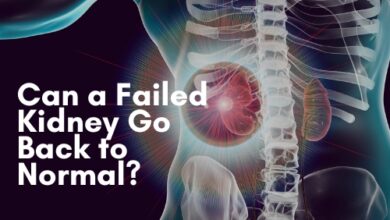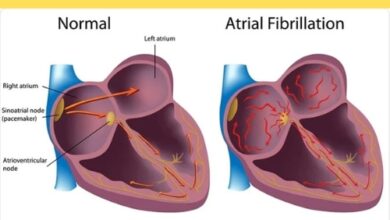This Type of Exercise Could Protect Your Brain for Years to Come
It may be the key to staving off cognitive decline.

The usual side effects of exercise include increased muscle, weight loss and maintenance, and heart health improvements. But the advantages go beyond having more defined glutes, arms, and abs in the short run. It turns out that a certain kind of exercise has a long-lasting beneficial impact on brain health in general.
HIIT stands for high-intensity interval training.
According to a recent study that was published in Aging and Disease, participants in HIIT experienced improvements in their hippocampus function up to five years after the intervention began.
Keeping the hippocampal tissue healthy is crucial for preventing age-related cognitive disorders like dementia and Alzheimer’s because it controls memory (particularly the capacity to store short-term memories), learning, and emotion.
Researchers tracked 151 individuals between the ages of 65 and 85 for six months while they underwent one of three exercise interventions: high-intensity interval training (HIIT), medium-intensity interval training (MIT), or low-intensity interval training (LIT). During the designated duration, every participant attended 72 sessions of supervised exercise.
Following the first trial, blood collection and cognitive tests for hippocampus performance were conducted on a regular basis for up to five years. MRI scans were performed at this time at the conclusion of every six- and 12-month interval.
The study’s MRI results for the HIIT group demonstrated that this kind of training greatly enhances and maintains hippocampal-dependent cognitive health for a maximum of five years from the onset of exercise.
The long-lasting improvement, according to researchers, supports the idea that exercise-based therapies, like the one these people had, can significantly prevent hippocampal cognitive deterioration in the elderly population. Additionally, they opine that variations in particular blood factor levels could serve as helpful biomarkers for selecting the best workout program to support cognitive progress.
Even though it isn’t the only factor contributing to age-related cognitive loss, doctors often look to the hippocampal regions in patients exhibiting dementia and Alzheimer’s disease symptoms.
For instance, a 2022 study that was published in 3 Biotech indicates that the hippocampus exhibits a rapid loss of tissue in the early stages of the disease, which is linked to a functional disconnection from other areas of the brain. Therefore, preventing degradation is essential.
More research is required to establish the effectiveness of healthy lifestyle practices, such as exercise and a clean diet, even though research has linked these practices to a lower incidence of dementia and Alzheimer’s disease.




